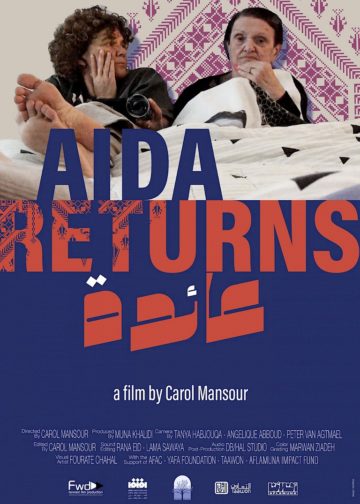This post is also available in: Français (French) العربية (Arabic)
by Ghada Hamrouche
The energy in Annaba was vibrating for a whole week, from April 24 to 30, around the Azzedine Medjoubi theater and the cinematheque: glitter, stars, red carpets, luxury cars, and a fervent audience, with 45 films in competition and 25 out of competition. The youth came out in force to cheer on stars like Fianso—alias Sofiane Zermani—a rapper and actor who showed up with Camélia Jordana, Spanish actress Itziar Ituño—who played Inspector Raquel Murillo in the series La Casa de Papel—Khaled Benaïssa, Souhila Mallem, Yahia Mouzahem, Ali Namous, Aziz Boukrouni, Djaffar Gacem, Idir Benaïbouche, and other celebrities. The popular success of this edition of the festival kept up throughout the week, with an audience estimated at more than 30,000 people by festival commissioner Mohamed Allal.
The Annaba Mediterranean Film Festival paid tribute to female directors in its Pearl of the Mediterranean segment, and the grand Golden Gazelle prize was awarded to María Vázquez, who acted in the film Matria by Spanish filmmaker Alvaro Gago. Matria, through the character of Ramona, tells the journey of a woman grappling with the difficulties of life both on the personal and professional levels. The film recreates and makes palpable the daily frenzy experienced by many women around the world who are fighting for their survival and that of their loved ones.
Vázquez, who received the Golden Gazelle for Best Female Performance, burst onto the screen in a credible, highly sensitive performance, rendering a moving
Resonance with Gaza

On a different note, the documentary Bye Bye Tiberias by Franco-Palestinian-Algerian director Lina Soualem, which won the jury prize in the documentary category, recreates with finesse and modesty the intertwined stories of four generations of Palestinian women whose lives were upended by the Nakba of 1948. We witness the story of Lina’s mother, who leaves the village of Deir Hanna to pursue her dreams of fame in the world of cinema, the fate of Lina’s grandmother, who was separated from her sister Hosnia during the Nakba, and that of Lina’s great-grandmother Umm Ali, who was uprooted from Tiberias. These interwoven stories paint a family portrait that singularly resonates with the genocidal campaign that Gaza’s Palestinians have been suffering for many months. The documentary maintains a tone of resistance by showing that throughout the wars and the trials of life, the women of Soualem’s family have been able to demonstrate extraordinary resilience.

In keeping with the same theme, director Carol Mansour, who is Lebanese of Palestinian origin, presented her poignant documentary Aida Returns in which she recounts the moving return of her mother’s ashes to her native Palestine. At the end of her life, living in Montreal and suffering from Alzheimer’s disease, Aida could only remember her memories of Jaffa. When she died in 2005, her daughter decided to bring her ashes back to Jaffa, so that she may return to the land of her ancestors—a moving journey she undertakes with close friends. Thus, Mansour fulfils her mother’s wishes, as her ashes now rest in the family plot where they are also mixed with the earth from the garden of her childhood home, with the sand of the beach of Jaffa. Aida has returned to “sow” this land, a land which is her own, a land found beyond death, despite the occupation.
Also, out of competition…
Finally, the fiction film Avant que les flammes ne s’éteignent (Before the Flames Go Out) by Franco-Algerian director Mehdi Fikri portrays the uncompromising fight of Malika, a woman from the French suburbs played superbly by Camélia Jordana, shedding light on the police’s murder of her brother.
The short film Sokrania 59 by Palestinian director Abdallah Al Khatib, carried by the main actress, the Franco-Palestinian Hiam Abbass, won the Golden Gazelle for Best Short Film. It highlights the resilience of women faced with the thorny problems afflicting refugees: uprooting and having to acclimate to the new environment of the host society.
Out of competition, the public was able to appreciate the Oscar-nominated docu-fiction Les filles d’Olfa (Four Daughters) by Tunisian director Kaouther Ben Hania, which received a minutes-long ovation, as well as the feature-length fiction film Iman by Cypriot directors Korinna Avraamidou and Kyriakos Tofaridis, Jeanne du Barry by French director of Algerian origin Maïwenn, and La Chimera by Italian director Alice Rohrwacher. The screening of Anatomie d’une chute (Anatomy of a Fall), on the other hand, was cancelled for technical reasons.































